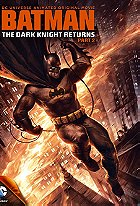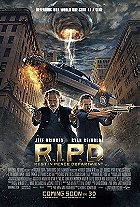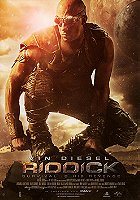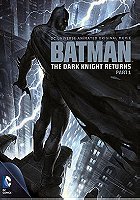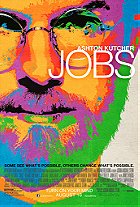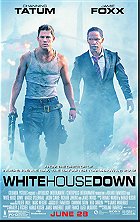Although sequels are typically perceived as worthless endeavours purely motivated by money, a follow-up to 1987's RoboCop made sense, as director Paul Verhoeven introduced a richly detailed world and a badass central hero, representing perfect fodder for future movies. However, sequelising RoboCop was a tall order, as it is an ultraviolent masterpiece that stands the test of time, and it seems borderline impossible to maintain the same level of quality. With Verhoeven not available for 1990's RoboCop 2, veteran director Irvin Kershner (The Empire Strikes Back) came aboard, working from a screenplay by iconic graphic novel writer Frank Miller. Despite the change in the creative team, the resulting film is a surprisingly organic continuation of Verhoeven's original film and a damn fine motion picture in its own right. Although not as good as its predecessor, RoboCop 2 is great fun, benefitting from exciting action sequences, impressive production values and sharp writing. It deserves a lot more credit than it receives.

The police officers of Detroit are once again on strike, as the city is in the throes of crippling debt, and the OCP corporation seeks to privatise Detroit's assets. However, RoboCop/Alex Murphy (Peter Weller) is still on the streets, working to fight crime and corruption despite being hopelessly outgunned. A vicious new narcotic has hit the streets, nicknamed "Nuke," the production of which is overseen by a madman named Cain (Tom Noonan). Memories of Murphy's former life still plague his mind, and the executives at OCP perceive this as a weakness, prompting them to commence work on "RoboCop 2," a new generation of police protection without any emotional trauma. With Cain serving as OCP's guinea pig for RoboCop 2, it is down to Murphy and his partner, Anne Lewis (Nancy Allen), to protect the streets of Detroit as it plummets into an urban nightmare.
Verhoeven's dark sense of humour and satiric insights allowed RoboCop to soar, as it contains a hilariously plausible vision of the future. RoboCop 2 thankfully retains this material, occasionally interrupting the story for uproarious satirical commercials and ridiculously upbeat news reports. Additionally, when OCP conducts major repairs on Murphy/RoboCop, they program him with a new slate of directives as decided by several board members. The resulting image of a politically correct, committee-designed RoboCop is viciously funny and increasingly relevant in the 21st Century. This type of material keeps RoboCop 2 feeling fresh, taking Murphy/RoboCop's story to its next logical place with ample creativity. The film especially succeeds when it delves into the personal life of Murphy, who is still haunted by memories of his old life but is continually told by his handlers that he's a machine, not a person. It's a tragic state of affairs, deepening Murphy's character and giving the story some emotional heft. However, it feels like more could have been done with this narrative aspect. Weller himself has stated that several character-driven moments were deleted, much to his bewilderment.

Unlike the universally detested RoboCop 3, which sanitised the character by placing him in a PG-13 movie, RoboCop 2 is a gleefully R-rated action-thriller, revelling in the same level of ultraviolence that defined the original film. In fact, the blood and gore here is borderline NC-17 stuff. Whatever the faults with RoboCop 2's screenplay, this sequel is a deliriously entertaining blockbuster, full of incredible action set pieces assembled with a deft hand. After all, Director Kershner did helm the best Star Wars movie, and his talent is all over the screen here. The movie especially springs to life in its action-heavy final act, climaxing with an unforgettable smackdown between RoboCop and the much bigger RoboCop 2. Produced before digital effects were the go-to tool, the movie relies on spectacular rear projection, stop-motion animation and puppetry, giving way to some genuinely mind-blowing moments that remain pretty darn cool. It sustains the original film's distinctive texture and aesthetic, with big guns and plenty of blood squibs, delivering what we expect from a RoboCop adventure. RoboCop 2 is not quite as smooth as Verhoeven's film, as the pace does lag occasionally, but this is a minor drawback.
Stepping back into the elaborate robotic costume, Weller remains perfect as Murphy/RoboCop, nailing the role's physical requirements while also giving the character a degree of depth. In several scenes, there is genuine subtlety to Weller's performance, giving us the sense that humanity still lingers deep within the big guy's tough, metallic exterior. Nancy Allen also returns as RoboCop's female partner, and it's nice to see her again, even if she does not have an overly large role in the story. As the bad guy, Tom Noonan has the right look and seems in tune with the goofy material.

Despite the criticism it received and Weller's dissatisfaction over the final product, RoboCop 2 is a worthy follow-up that effectively builds upon the first movie and never tarnishes its legacy. Interestingly, Miller's original script for the film was labelled as "unfilmable" by the producers, who subsequently ordered extensive rewrites. In the years to follow, though, Miller's vision was translated into comic book form, and Miller held no ill will against the film; in fact, he makes a cameo appearance. RoboCop 2 never comes close to the excellence of 1987's RoboCop, but it does replicate its spirit, rendering this the only RoboCop production apart from the original that is worth watching. The less said about RoboCop 3, the television series and the 2014 remake, the better.
8.2/10
 Login
Login
 Home
Home 183 Lists
183 Lists 1665 Reviews
1665 Reviews Collections
Collections
 0 comments,
0 comments, 